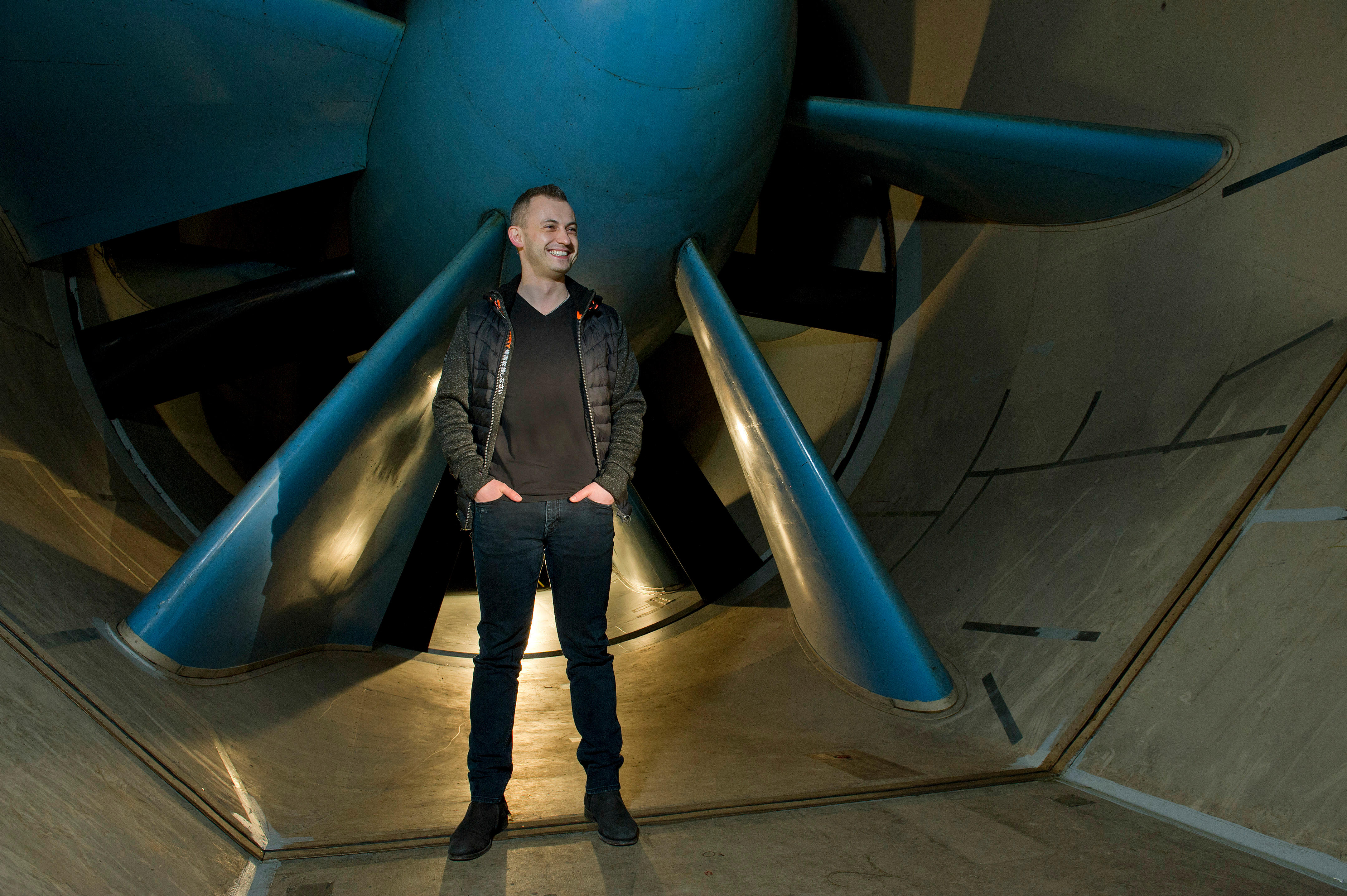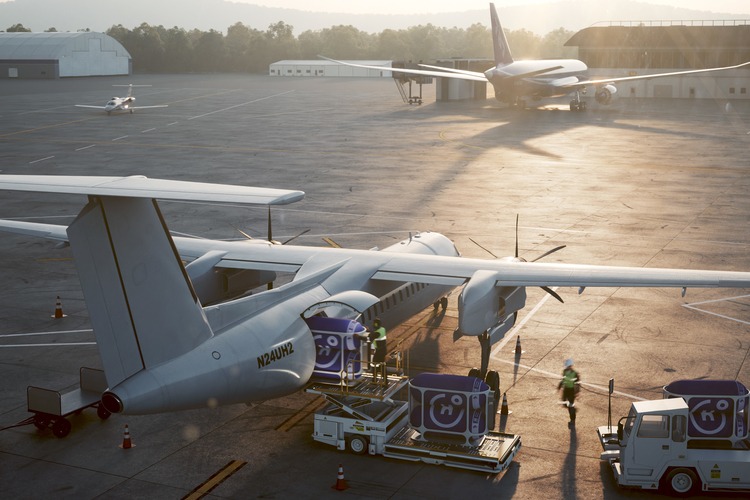“We Can’t Wait”: Aerospace Entrepreneur Gives Hydrogen-Powered Air Travel a Jump Start
-
-
Slice of MIT
- 1
Filed Under
Recommended

Looking back on his childhood in the Soviet Union, Paul Eremenko ’01 says one of his first memories is of being on a commercial flight at age four. “I distinctly remember being taken into the cockpit and being allowed to sit in the copilot seat,” he says, adding, “It was a very different time in a very different country.”
He has been drawn to flight ever since. After emigrating from Ukraine to the United States with his parents at age 11, he earned his pilot’s license before his driver’s license and set his aim on being an aerospace engineer. MIT cemented that aspiration. Today, he is a cofounder and the CEO of Universal Hydrogen Co., a Los Angeles–based startup developing hydrogen storage, transport, and distribution solutions and hydrogen power trains for commercial aircraft.
Although at MIT he wasn’t yet focused on reducing the carbon impact of planes, he always had an eye for innovation in aerospace. During his first year at MIT he joined the aerial robotics club and became its president by his sophomore year. He spent days at Hanscom Field, the general aviation airport in Bedford, Massachusetts, and flying around Boston—even waving to patrons at the Prudential Tower’s then Top of the Hub restaurant.
I think aviation should be at the forefront of what’s possible, showing the way for other industries rather than being the laggard that we are today.
After leaving MIT, Eremenko earned a master’s in aeronautics at Caltech and a law degree from Georgetown, subsequently holding influential roles at some of the leading aerospace companies, including most recently Airbus (as CTO) and United Technologies Corporation (as senior vice president and CTO). Inspired a decade ago by a project he launched at the Defense Advanced Research Projects Agency involving electric aircraft propulsion, he has come to prioritize green aviation and decarbonization technologies in all of his roles.
“Even though there has been some incremental progress in improving efficiency, overall as a sector aviation is not on a trajectory to meet Paris Agreement targets in terms of reducing carbon and other greenhouse gas emissions,” says Eremenko. “I’ve always found that very frustrating. I think aviation should be at the forefront of what’s possible, showing the way for other industries rather than being the laggard that we are today.”
Last spring, Eremenko launched Universal Hydrogen to create what he believes is a realistic path toward those emission reduction targets. His fellow MIT alum and former advisor John-Paul Clarke ’91, SM ’92, ScD ’97 is a cofounder and CTO. The company’s key innovations are lightweight modular capsules for delivering “green hydrogen” from renewable energy production sites to the airplane, as well as a fuel cell conversion kit that they intend to have ready by 2025 to replace the existing turbine engine in airplanes used for short regional flights. The founders envision that by the early 2030s, larger hydrogen-powered planes will be built from scratch, once the technology has gained safety certification and passenger acceptance in regional service.

Universal Hydrogen aims to deliver lightweight modular “green hydrogen” capsules by 2025
The clean energy source isn’t new, by any means—the first manned hydrogen-powered plane flew in 1957, and today there are hydrogen cars on the road, most notably the Toyota Mirai. But one of the major challenges is lack of a hydrogen distribution infrastructure—the problem that Eremenko and his team are aiming to solve with their modular capsules. With others investing in research and development for the fuel source as well, including Airbus and the UK-based company ZeroAvia, Eremenko is determined to help jump-start the hydrogen aerospace industry, paving the way for others to join.
“I have no doubt that hydrogen will happen in aviation. If left to its own devices, it’ll happen in maybe 15, 20, 25 years, but we can’t wait that long,” says Eremenko. “In my career so far, I’ve made cool airplanes fly. I’ve done some cool space projects. I think Universal Hydrogen is probably the most fun yet. It is an opportunity to reshape the industry in a major way—to make it better.”
Photo (top): Christopher Jones/Alamy.







Comments
David Ecklein
Sat, 05/22/2021 1:44pm
(No subject)
A big devil in the details. Free hydrogen is very scarce. It normally has to be generated using some other energy source. So hydrogen is a mere conduit from that source, and since this generation involves energy conversion, loss is inevitable. Therefore, hydrogen will be that much less green than the source. The 2nd law of thermodynamics cannot be repealed by politicians or promoters. Nor can it be ignored like some laws chiseled by Moses in stone often are.